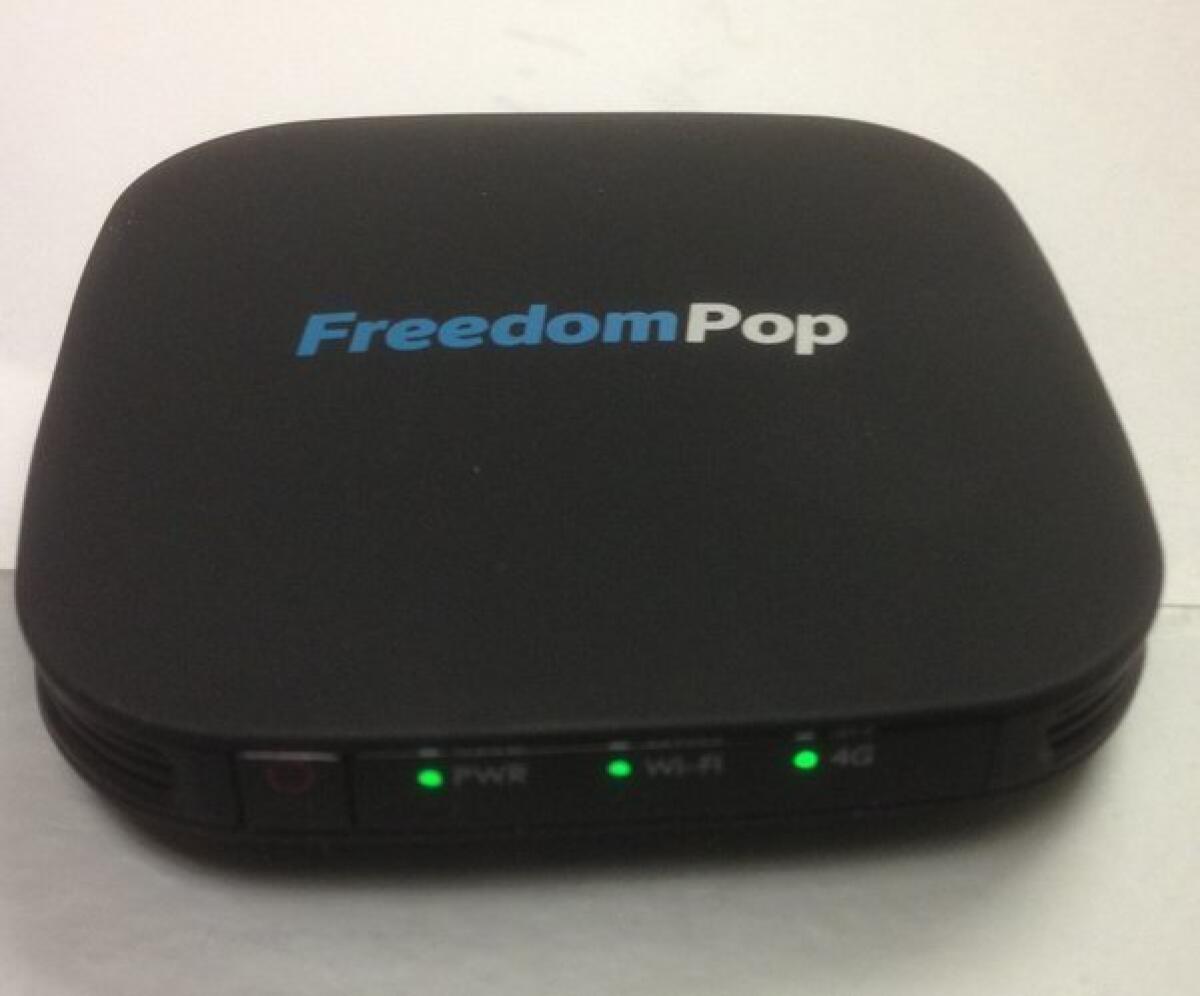Gear: Here’s another way for travelers to connect, inexpensively

- Share via
What’s worse than being disconnected while on the road? Paying for the connectivity you need to have. A new device addresses both those woes.
FreedomPop offers various connectivity via Wi-Fi/4G on its various devices — a USB stick, a hot spot and a “rocket sleeve” for an iPod Touch — that can keep you connected away from home (or even at home). Here’s the good news: You get half a gigabyte free.
You’re probably thinking, “I’ll burn through that in a nanosecond and they’ll get me on the additional gigabytes I need.” Not so much. Each additional gigabyte costs $10.
For those who don’t know how much they use, company co-founder Stephen Stokols told me the half-gig would let you check and answer email and do a few Facebook postings. A gigabyte gives you access to 333,000 emails, or a two-hour movie, according to this chart from PC World. Five gigabytes give you 1.7 million emails or seven downloaded movies.
You pay for the devices that allow you to connect: $39 for the USB stick, $89 for the photon hot spot and $99 for the sleeve. A 4GB data plan using the hot spot, the “rocket sleeve” that turns the iPod Touch into an iPhone or the USB stick, would cost me $32.98 a month, including taxes in my area, according to the website and based on taxes in my area.
There is no contract. You can “top up” your credit, as you can with Skype, if you think you might go over your agreement.
How does this compare with other products? I use a NetZero USB stick, which gives me 1GB of data a month for about $20. I also use a Verizon HotSpot, which gives me 5GB of data a month and costs about $55. I’m usually under the data charges on both.
Would I switch to FreedomPop? Based on a test — FreedomPop sent me the “photon” hot spot device — I would. Much of the work I do on Sundays requires a hot spot, and I found that the photon stayed connected, which isn’t always true of the NetZero USB stick or the Verizon hot spot. The speed compared favorably with my home Internet.
More than that, I like the philosophy of Stokols, who believes access to the Internet is a right, not a privilege “in the sense that everyone should have access,” he said. “It lifts your knowledge base,” he said, and “more knowledge is a key sort of weapon of today’s society.”
His theory evolved as a result of his volunteer work in Big Brothers Big Sisters. His young charge was trying to apply for college but didn’t have Internet access. Stokols was struck by the inequity of the digital divide.
Although half a gigabyte won’t let you download and view an unlimited number of movies, it’s enough to give you basic connectivity in FreedomPop’s coverage areas, which include most major markets in the U.S. (except, for now, San Diego and Phoenix). Stokols expects to have the country covered by the end of the year.
Stokols also has developed no-cost home Internet access for underserved markets. Isn’t he treading on some big toes with his radical notions? “Such is the revolution,” he said. “That’s how they happen. Someone’s gotta take the first plunge.”
Info at FreedomPop.
Follow us on Twitter @latimestravel and like us on Facebook
More to Read
Sign up for The Wild
We’ll help you find the best places to hike, bike and run, as well as the perfect silent spots for meditation and yoga.
You may occasionally receive promotional content from the Los Angeles Times.






